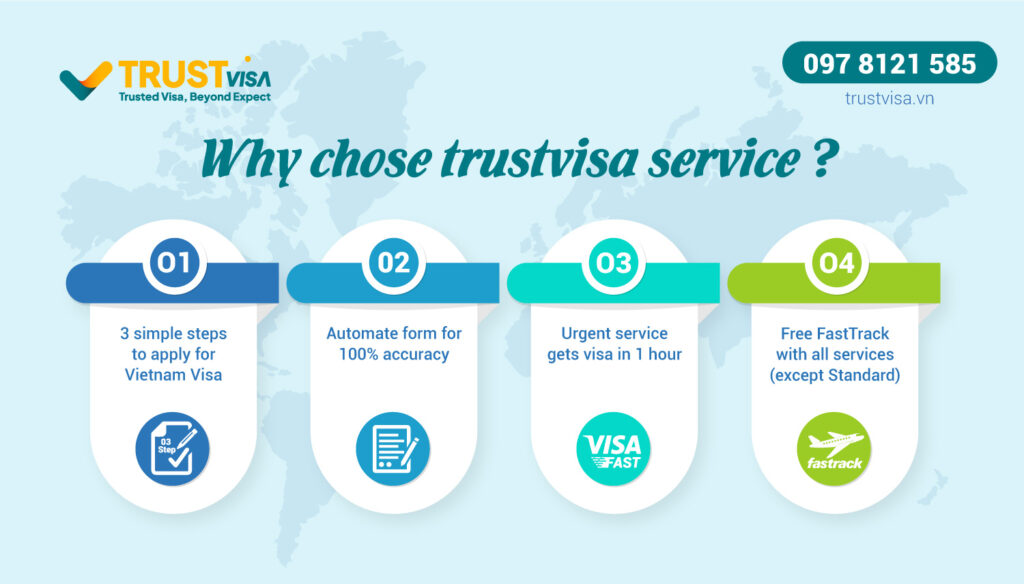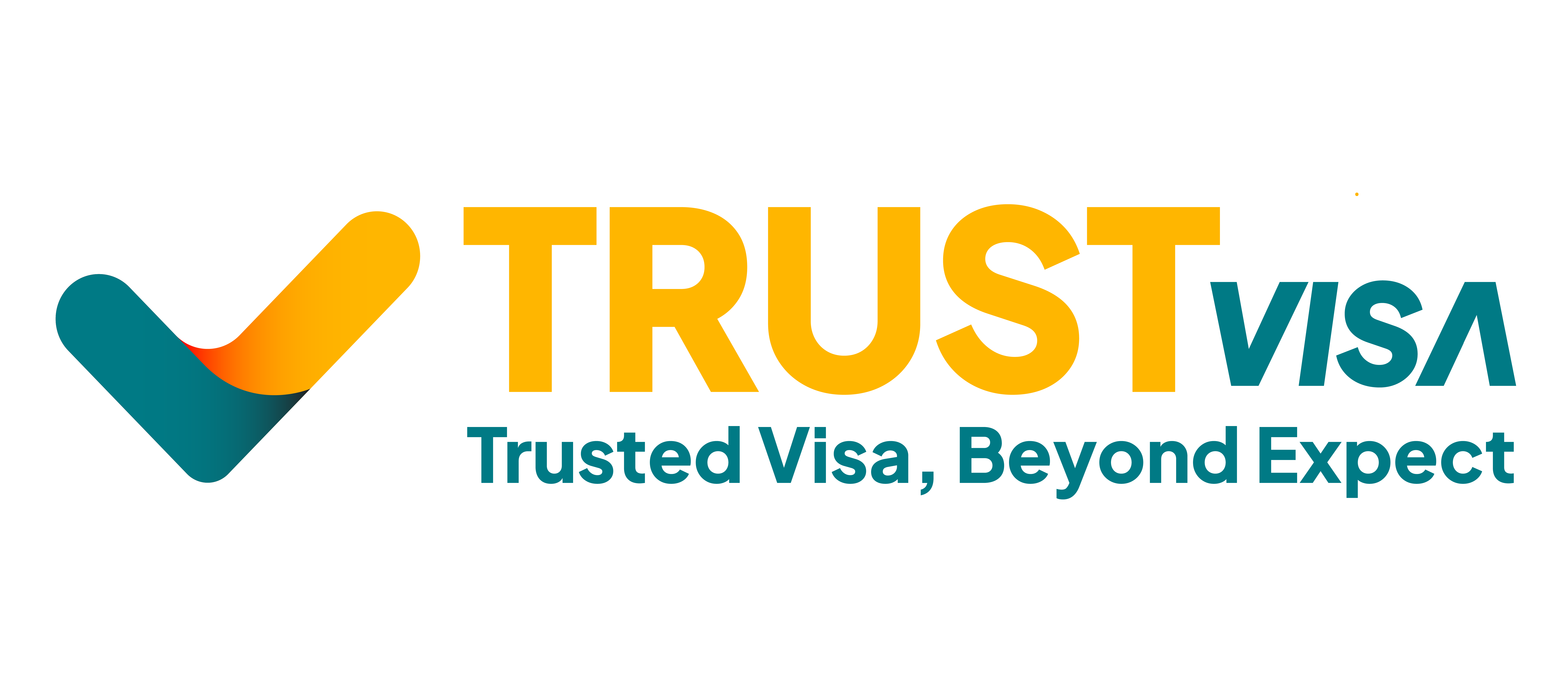10 MAJOR VIETNAM VISA TYPES
When traveling to Vietnam, or any other country, having a visa is a crucial document for foreigners. The article below presents a comprehensive guide to the different types of visas based on your specific entry purposes. It will provide you with all the necessary information for your journey.
Here is a classification table showing the top 10 Vietnam visa types based on their intended purpose of entry:
|
Symbol |
Description |
Valid time |
|
DL |
Tourist Visa |
Maximum 90 days per entry |
|
DN1,DN2 |
Business Visa |
Maximum 90 days per entry |
|
VR |
Relatives or other purposes visa |
Maximum 06 months |
|
TT |
Visiting relatives visa |
Maximum 12 months |
|
PV1, PV2 |
Journalist Visa |
Maximum 12 months |
|
NG |
Diplomatic visa |
Maximum 12 months |
|
DH |
Vietnam student visa |
Maximum 1 year (12 months) and total stay period not to exceed 5 years |
|
ĐT1, ĐT2,ĐT3, ĐT4 |
Vietnam Investor Visa |
From 1 to 5 years |
|
LĐ1, LĐ2 |
Vietnam work visa |
Maximum 02 years |
|
LS |
Lawyers visa |
Maximum 05 years |
TABLE OF CONTENTS
1. VIETNAM TOURIST VISA (DL)
Tourist visa allows foreigners to enter Vietnam for sightseeing, traveling, relaxing at tourist locations and resorts, cultural activities, and organized sports for up to 90 days.
This type of visa is highly sought after by international visitors who plan to visit Vietnam. However, to be eligible for this visa, certain conditions must be met. For example:
- Applicants must not be on the list of individuals who are prohibited from entering Vietnam.
- They must also provide complete documentation proving the purpose of their visit, such as sightseeing tickets, hotel reservations, detailed travel itineraries, etc.
- Applicants must have a passport that is valid for at least 6 months from the expected date of entry.
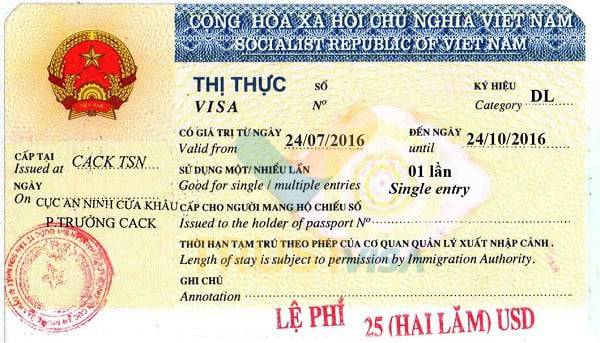
Duration of stay:
- Single-entry tourist visa permits an individual to stay for a maximum of 90 days in one entry.
- Multiple-entry tourist visa: Visitors are permitted to remain in the country for a maximum of 90 days per entry and may enter multiple times during the period of visa validity ( (1 month, 3 months, 6 months, or 1 year)
A tourist visa allows visitors to enjoy a vacation in a foreign country, exchange cultural experiences with locals, indulge in unique culinary experiences, and explore new things with friends and family.
How to apply for the Vietnam tourist visa
There are 03 methods to apply for a tourist visa, which include::
- Method 1: Apply for a Vietnam eVisa
- Method 2: Apply for Vietnam visa on arrival ( VOA)
- Method 3: Apply for a tourist visa directly at a Vietnamese embassy/consulate abroad or apply directly at the Immigration Department in Vietnam
2. VIETNAM BUSINESS VISA (DN1, DN2)
Foreigners can enter Vietnam on a business visa to attend conferences, exhibitions, market surveys, business negotiations, or short-term work (up to 3 months).
Business visas are granted to individuals who satisfy the following criteria:
- Possess a passport that is valid for a minimum of 6 months from the intended date of entry.
- Hold a valid invitation letter issued by a company, seminar, conference, or business contract held in Vietnam.
- Are not included in the list of “blacklist” prohibited from entering Vietnam.
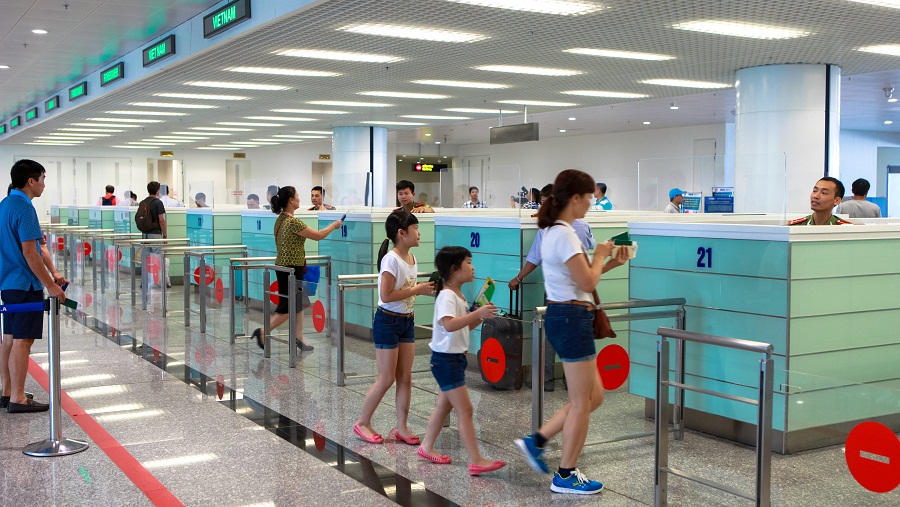
Vietnam offers two main types of business visas based on the length of stay:
- 1-month business visa, which allows a maximum stay of 90 days for a single entry.
- Multiple-entry business visa, which allows a maximum stay of 90 days per entry and permits multiple entries within the validity period of the visa.
A business visa is essential if you plan to attend important events, conduct business meetings, or negotiate with partners and potential clients. It opens up opportunities for cross-national business and helps you maximize your time while staying in Vietnam.
How to apply for a Business visa
There are 03 ways to obtain a business visa for Vietnam:
- applying directly at the embassy/consulate,
- applying online for an eVisa, or
- applying for a visa on arrival at the airport.
Refer to the specific process for each option.
3. VIETNAM STUDENT VISA (DH)
A student visa is a type of visa that allows foreign citizens to enter Vietnam for the purpose of studying at universities, colleges, and training facilities recognized by the Ministry of Education and Training of Vietnam. By obtaining a student visa, you will have the opportunity to study at prestigious universities and colleges in Vietnam, which will enhance your knowledge and cultural experience. Moreover, you will have a chance to make friends with students in Vietnam and from across the world, which will provide you with a valuable network of contacts for your future career.
Vietnam student visa is categorized into two types depending on the length of stay:
- The maximum duration of a student visa is 12 months.
- The student visa can be extended up to 12 months multiple times until the completion of the study program or the expiration of the study period mentioned in the school’s admission confirmation.
The maximum duration of stay in Vietnam on a student visa should not exceed 5 years.
4. VIETNAM WORK VISA (LĐ1, LĐ2)
A work visa is a type of visa that permits foreigners to enter Vietnam for the purpose of working at businesses and organizations authorized by competent state agencies to employ foreign workers. By obtaining this visa, you can explore job opportunities at companies and businesses, experience a new working environment with good salaries and benefits, and enhance yourself professionally.
Vietnamese work visa is categorized into 02 main types based on the duration of stay:
- 1-year work visa, which allows one entry and a maximum stay of 01 year.
- Multiple-entry work visa, which permits multiple entries within its validity period of 02, 03, 04, or 05 years and allows a maximum stay of one year per entry.
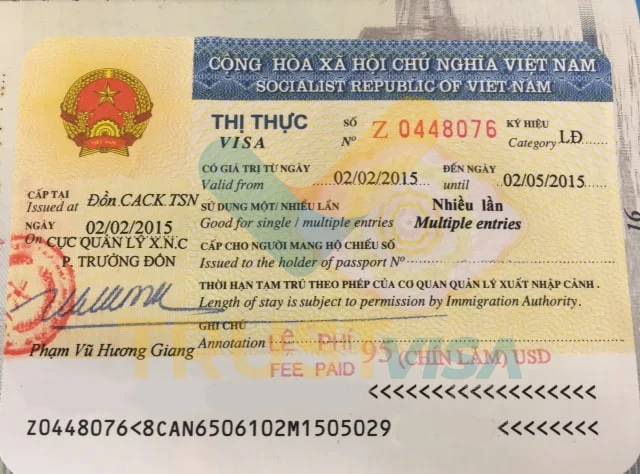
5. VISITING RELATIVES VISA (TT)
The visiting relatives visa is a type of visa that permits foreigners to enter Vietnam for the purpose of visiting their relatives and friends who are currently residing, studying, or working in Vietnam. The visa is valid for a maximum of 3 months ( 90 days). With this visa, you will have the chance to connect with your loved ones, immerse yourself in Vietnamese culture, and create beautiful memories with your family.
Visiting relatives visa is categorized into 02 main types based on the duration of stay:
- 1-month visiting relatives visa: Allows a maximum stay of 30 days in one entry.
- Multiple-entry visiting relatives visa: Allows for multiple entries within a specified validity period (1 month, 3 months, 6 months, or 1 year). Each entry permits a maximum stay of 30 days.
As per current regulations, Vietnam Visit Visas are granted to the following individuals:
- Foreigners who are spouses or children under 18 years of age of foreigners who have been granted work visas (LV1, LV2), investment visas (DT1, DT2, DT3), Study visas, Work visas, and other types of visas marked as NN1, NN2, PV1.
- Foreigners who are parents, wives, husbands, or children of Vietnamese citizens.
Vietnam Visit visas are issued for a maximum term of 01 year( 12 months). Additionally, with Vietnam Visit Visa, foreigners can apply for a temporary residence card that is valid for a maximum stay of 03 years in Vietnam to visit their relatives.
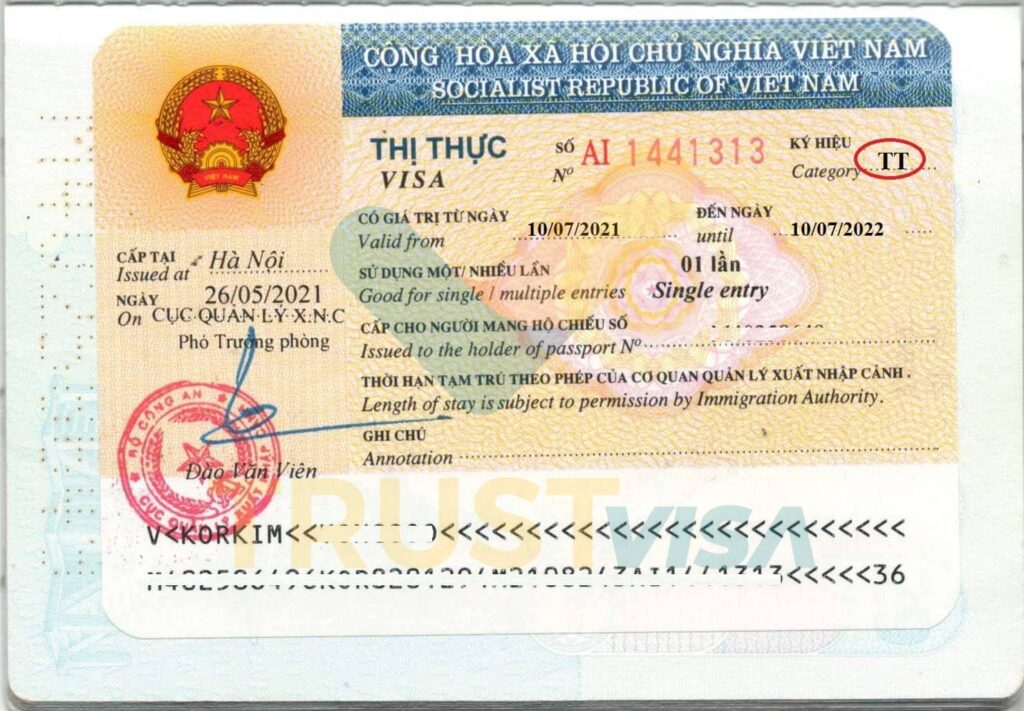
6. VIETNAM INVESTOR VISA (ĐT1, ĐT2, ĐT3, ĐT4)
An investor visa is a type of visa that grants foreigners permission to engage in investment activities in Vietnam, in accordance with Vietnamese law. This presents both an opportunity and a challenge for accessing a market with abundant human resources.
There are 04 main types of Vietnam Investor visas that are categorized based on the investment field:
- Investor visa for infrastructure (ĐT1): available for investing in infrastructure development, border gate economic zones, industrial parks, export processing zones, tourism, and housing development.
- Investor visa (ĐT2): For investment activities in the fields of industrial production, agriculture, forestry, and fisheries.
- Investor visa (ĐT3): For investment activities in the service sector.
- Investor visa (ĐT4): For investment activities in the fields of education, training, and healthcare.
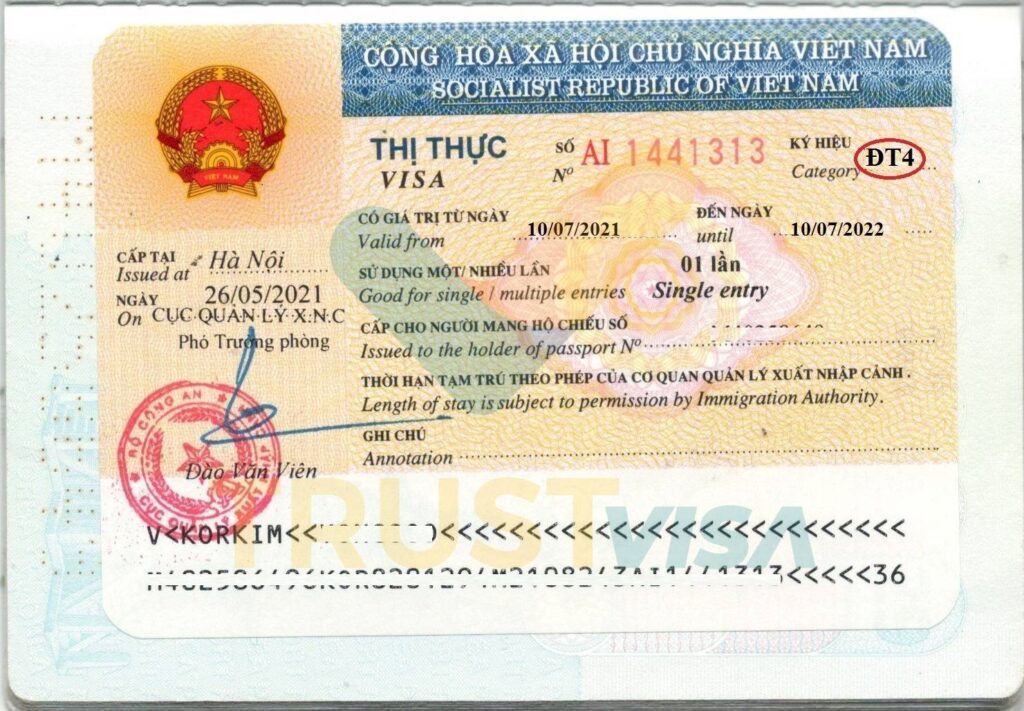
7. VIETNAM JOURNALIST VISA (PV)
A reporter visa, symbolized as PV1 or PV2, is a type of visa that is issued to foreign reporters and journalists who wish to enter Vietnam. There are two types of reporter visas, depending on the length of stay in Vietnam:
- PV1 journalist visa: This visa is issued to reporters and journalists who are foreigners and have permanent residency in Vietnam.
- PV2 journalist visa: This visa is issued to foreign reporters and journalists who have short-term activities in Vietnam.
Foreigners who meet the eligibility criteria for PV1 and PV2 reporter visas can stay in Vietnam for a maximum period of 12 months.
8. VIETNAM RELATIVES OR OTHER PURPOSES VISA (VR)
Foreigners who intend to visit Vietnam for the purpose of visiting their relatives (such as grandparents, parents, spouses, children, etc.) or for other specified purposes can apply for a VR Visa. The VR Visa symbolizes that the visa is for visiting relatives or other approved purposes. The maximum duration of the VR Visa is 6 months, and it can be granted for a single or multiple entries.
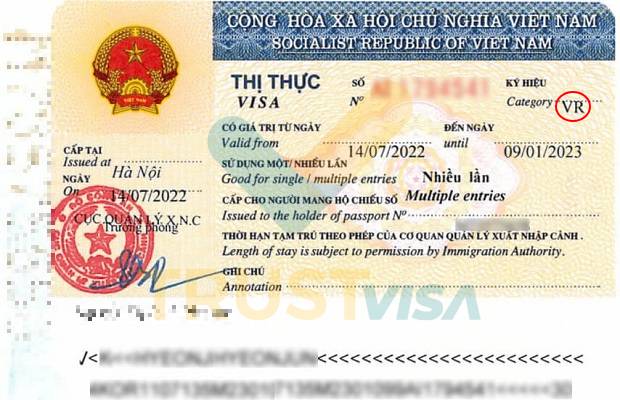
9. VIETNAM DIPLOMATIC VISA (NG)
Foreigners who intend to visit Vietnam for the purpose of visiting their relatives (such as grandparents, parents, spouses, children, etc.) or for other specified purposes can apply for a VR Visa. The VR Visa symbolizes that the visa is for visiting relatives or other approved purposes. The maximum duration of the VR Visa is 6 months, and it can be granted for a single or multiple entries.

10. VIETNAM LAWYERS VISA (LS)
Vietnam Lawyer Visa, represented by the symbol LS, is a special type of visa that is issued to foreign lawyers who practice in Vietnam for a maximum period of 5 years. This visa is granted to foreign lawyers who meet the following requirements:
- Hold a Law Practice License in Vietnam that has been issued by the Ministry of Justice.
- Possess a valid passport or an international travel document.
- Are guaranteed by agencies, organizations, or individuals in Vietnam.
- Do not require entry permission as stated in Article 21 of Law 47/2014/QH13.
It’s important to understand and correctly identify each type of visa so that you can prepare the necessary documents and meet all the requirements. TrustVisa has provided some helpful information to ensure that you avoid any errors that could delay or disrupt your travel plans. Proper visa classification is also essential for managing and controlling the visa process in a way that ensures national security and meets the standards of the immigration system.
Why choose TrustVisa:
- The visa application process is made easy with an automatic entry system that reduces information errors to 0%
- Customers no longer need to waste precious time filling out the form themselves and checking the visa status regularly
- Our fees are highly competitive and extremely economical
- Moreover, our visa application success rate is up to 99%.
- We also offer a refund in case you don’t receive your Vietnam Visa on time
- We provide free fast-track for all services (except Standard service)
- We are available both on holidays and weekends
- Our team of consultants is always ready to answer all your questions completely free of charge.
Get in touch with TrustVisa today!
